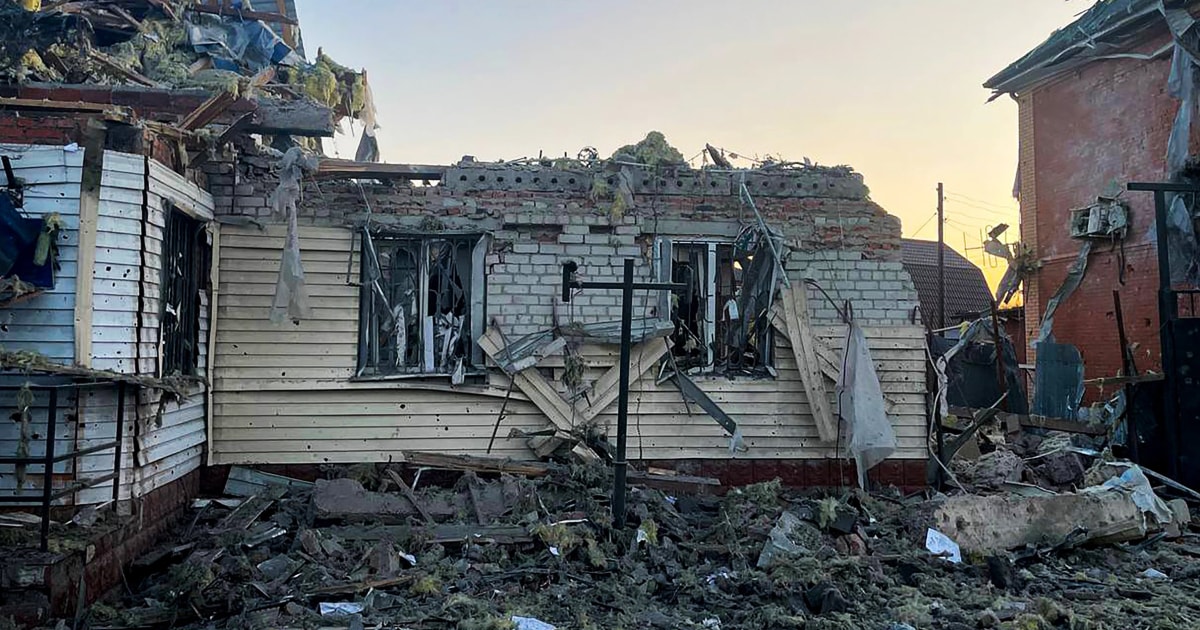
Russia said Wednesday it was battling an unprecedented cross-border incursion from Ukrainian troops backed by armored vehicles and aerial support, with Moscow scrambling to reinforce the area after what President Vladimir Putin called a “major provocation.”
The attack has not been acknowledged by Ukraine but would mark a dramatic shift in strategy as its forces struggle to hold on to key territory on the front lines in the country’s east.
While developments on the ground were murky, the apparent assault on the Kursk region in southern Russia raised questions about the Kremlin’s defenses and about Kyiv’s aims at a crucial moment in the war.
Kursk incursion
Acting Gov. Alexei Smirnov first reported Tuesday morning that Ukraine’s armed forces were attempting to cross the border of his region.
Hours later, Russia’s defense ministry said that up to 300 Ukrainian troops, supported by 11 tanks and more than 20 armored fighting vehicles, attacked Russian positions on the border. It said its forces were repelling the attack with artillery, aviation and drones Tuesday night.
The ministry said early Wednesday that it was still battling the incursion, adding that up to 260 Ukrainian troops had been killed as its military and border guards prevented them from advancing deep into Russia’s territory.
Reporting to Putin later on Wednesday, Russia’s Chief of the General Staff, Valery Gerasimov, said up to 1,000 Ukrainian troops attempted the incursion early Tuesday morning and at least 100 had now been killed, with another 215 injured.
NBC News has not verified the claims.
Smirnov said that he spoke with Putin on the phone overnight and the Russian leader was “keeping the situation under personal control.” He added that residents were being evacuated from the border of the region and urged people to give blood as the fighting continued.
Five civilians had been killed since Tuesday, he said. The Russian health ministry said 24 people had been injured, the Tass state news agency reported.
Videos and images geolocated by NBC News show damaged buildings in the border town of Sudzha in the Kursk region, which is just 6 miles from the border with Ukraine and has a population of about 5,000 people.
It’s unclear whether the damage or the reported casualties were the result of ground combat or from the rocket and drone fire that Smirnov reported earlier.
Putin himself addressed the situation in Kursk during an unrelated meeting Wednesday afternoon, accusing Ukraine of “another major provocation” and saying that he would meet with the heads of the country’s security, defense and law enforcement agencies on the situation.
The rapid developments sent Russia’s military bloggers into a tailspin, reporting ongoing advances Wednesday morning and that Ukrainian troops had been able to establish a foothold.
The influential “Two Majors” Telegram channel reported that Ukrainian troops had penetrated as far as 9 miles into the Kursk region and were present in 11 settlements. Others alleged that Ukraine was supplying fresh troops to the area of the breakthrough, with elite and well-trained divisions on standby. NBC News could not verify those reports.
While Russian volunteer groups opposed to the Kremlin have attempted a series of incursions into Russian regions bordering Ukraine since last year, it appears to be the first time that Ukraine’s own troops have attempted such an audacious attack.
There has been no official comment from Kyiv on the incursion or what resources may have been involved. Ukraine’s army and military intelligence did not immediately respond to a request for comment from NBC News.
But it fueled questions about why Ukraine might have launched an incursion into Russian territory with regular troops just as military observers say it’s bleeding soldiers and weapons in the vulnerable east, particularly near the towns of Pokrovsk and Toretsk in the Donetsk Region.
Ukraine’s General Staff said Wednesday that its troops repelled 42 enemy assaults in the Pokrovsk direction and 18 in the Toretsk direction.
It’s hard to understand what exactly Ukraine is trying to achieve with this incursion, Matthew Ford, associate professor in war studies at the Swedish Defence University in Stockholm, told NBC News.
It could be that Kyiv is trying to distract Moscow’s attention, forcing it to recommit troops to the border, Ford said. Ukraine could also just be in need of a “good news story” for its domestic audience or striving to recapture headlines in the West, he added.
But in the context of a difficult situation near Pokrovsk and Toretsk, he said, it could be doing Ukraine more harm than good in the long term.
“What they’re doing is effectively extending their line and potentially thinning out the number of troops that they can use to defend that line,” Ford said. “There must be something else going on to make them think that this is a good move,” he said, adding that a lot will be contingent on how many troops Ukraine has actually committed for the incursion and whether they intend to stay beyond carrying out a simple raid.






